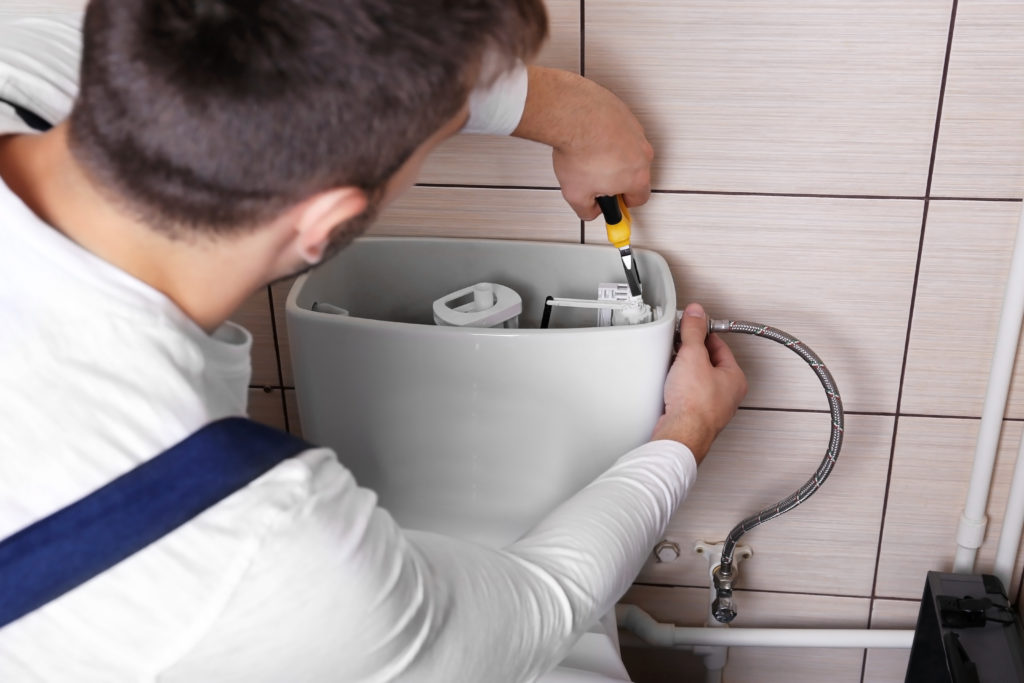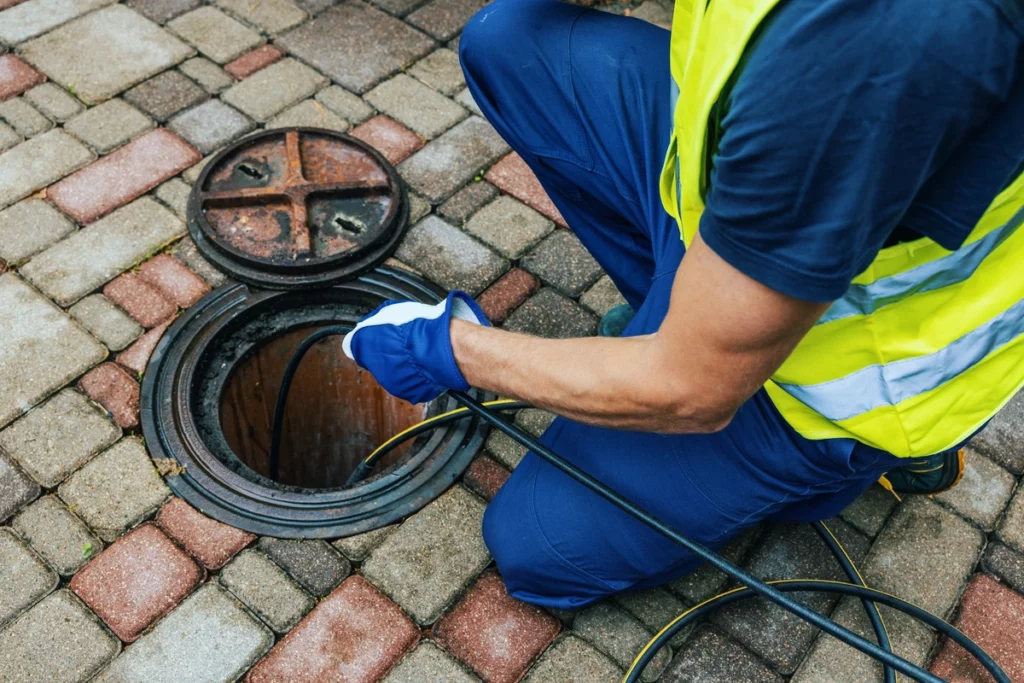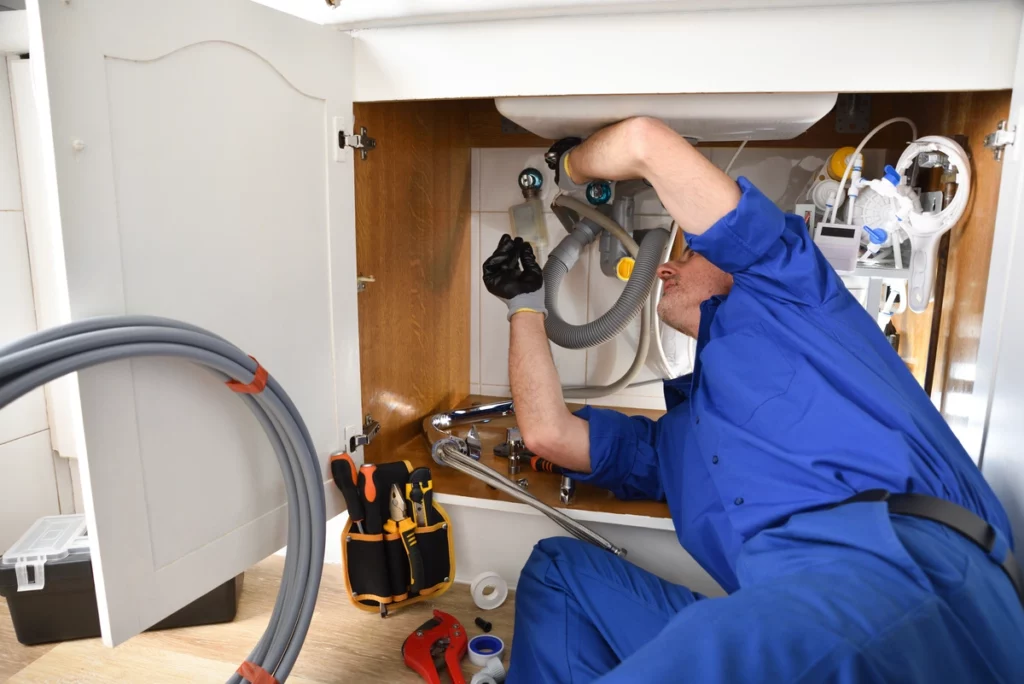You’re going about your day, just trying to start your morning. You walk into the kitchen to get a cup of coffee, and then you see it.
Water. All over your floor.
You follow the trail and see that it is leading to your refrigerator. Your stomach sinks.
It’s a scenario most of us will find ourselves in at one point or another. If you have a refrigerator leaking water, your thoughts might be any of the following:
- “Did I do something wrong?”
- “How much will this cost to fix?”
- “Is this going to damage my floor?”
Don’t panic! With our comprehensive guide to all things refrigerator leaks, you’ll know exactly which steps to take next.
My Fridge Is Leaking Water! What Do I Do? 💦
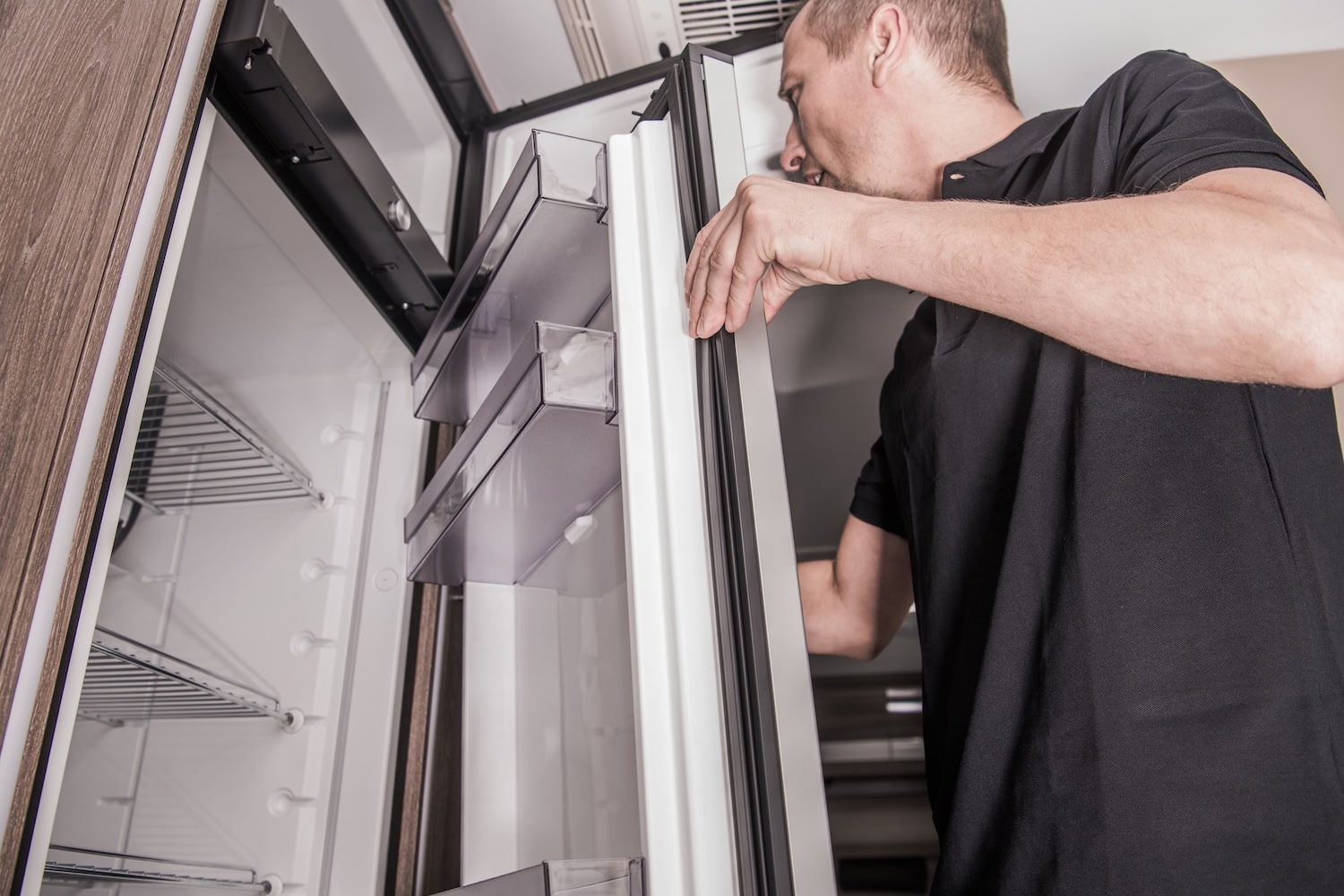
If you’ve found your fridge leaking water, there are a few things you should immediately do before putting on your tool belt.
1.) Clean Up Water – Before you do anything, it’s important to clean up any pooled water you might have found. If water is left on your floor for too long, it could leave behind stains. Wipe up the water, and lay a towel down to absorb any further leakage.
2.) Check Underneath the Fridge – If you are able to do it safely, it may be a good idea to move your fridge. This way, you can check to see if water has pooled underneath it as well. If you don’t keep that area dry, it could lead to mold growth or rotting of your floorboards. If you are unable to move it yourself, you might consider using a box fan to help promote airflow until the problem can be solved.
3.) Make Sure Your Fridge Is Running – Check to see if your fridge and/or freezer are still running and producing cool air. If they are not, check to see if a breaker has been flipped.
4.) Determine Where the Leak Is Coming From – If you are able, investigate and see if you can figure out where the fridge is leaking from. This can help you determine the source of the leak later on.
5.) Reach Out to Your Local Plumber – It’s best to contact a plumber and set up an appointment as soon as you are able to avoid worsening any problems.
Do I Need to Buy a New Fridge? 💸
If your refrigerator is leaking water, you might start worrying that you have to buy a completely new fridge. While it’s not out of the realm of possibilities, it’s important to know that many causes of a refrigerator leak can be solved.
Why Is My Fridge Leaking Water? 💧
So, why exactly is your refrigerator leaking water? Here are some of the most common causes.
Frozen Water Supply Line
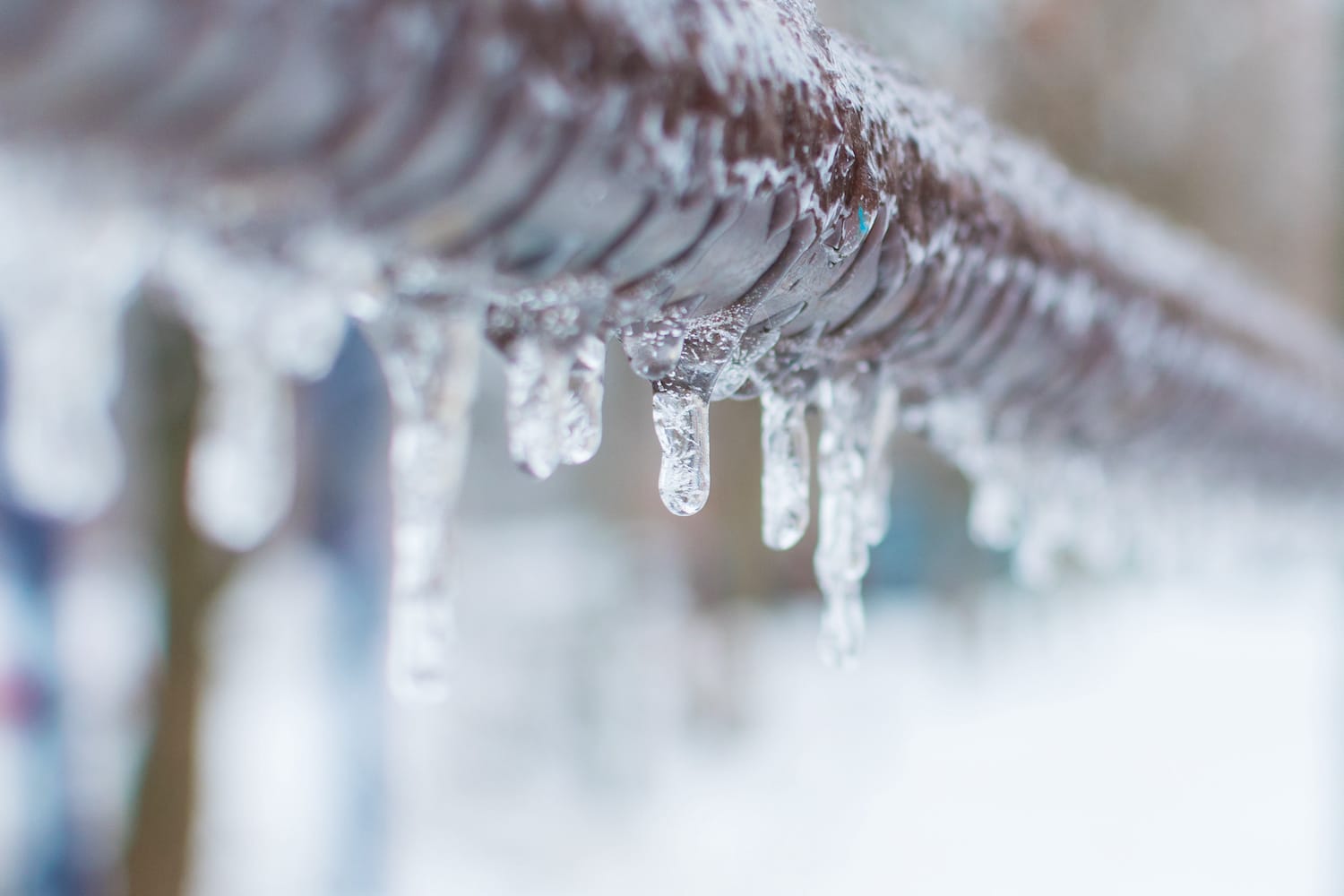
Most modern refrigerators are hooked up to a water supply line. This allows them to filter drinking water and make ice cubes. When the freezer starts getting excessively cold, though, you run the risk of freezing the water line. When the water line gets frozen, it can create problems for your fridge, including leaks.
If the source of your leak is coming from the back of your fridge, a frozen supply line could very well be your problem. First, check to see if water is coming out of the water dispenser. If not, pull the fridge out from the wall, and unplug it.
You should be able to find the water supply line fairly easily. It will be a plastic or metal tube. You can try and defrost it yourself by using a hairdryer or heat gun. Alternatively, you can attempt to flush it by pouring warm water down the drain. If that does not work, it may be time to call a professional.
The Fridge Is Not Level
You might not think much about the angle of your fridge. The truth is that it can hugely affect your refrigerator’s functionality!
In order to run properly, your fridge needs to be slightly tilted backward. This will help the coolant flow freely.
If you suspect that your fridge is not angled properly, you can check by placing a level on top of the fridge. If the refrigerator is level, you might have to make some adjustments.
If your fridge needs to be angled, you can raise the front legs with a crescent wrench. Ideally, you want the front of the fridge to be 1/4” to 1/2” higher than the back. If you feel uncomfortable doing this yourself, your local plumber should be able to help you for a reasonable service fee.
Clogged Defrost Drain
In order for the freezer compartment to function optimally, it needs a way to get rid of warm, humid air. A blocked defrost drain can stop this process in its tracks. Located near the back of the freezer, the defrost drain can cause drips if the hose becomes blocked or clogged. When the humid air can’t pass through, the refrigerator’s condenser coils have to work overtime to keep your fridge cold. This can eventually lead to leaking water.
To determine if a blocked defrost drain is the source of the problem, check and see if the drain hole has been accidentally covered up. After removing any frozen food from the area, wait 24 hours to see if the dripping stops.
If it doesn’t, you may be dealing with a blockage in the hose itself. Unplug the refrigerator, and take off the defrost drain cap. You can then try to flush the defrost drain hose with warm water using a turkey baster. If water still cannot flow through the defrost drain hose, contact a professional to help you unclog it.
Broken Drain Pan
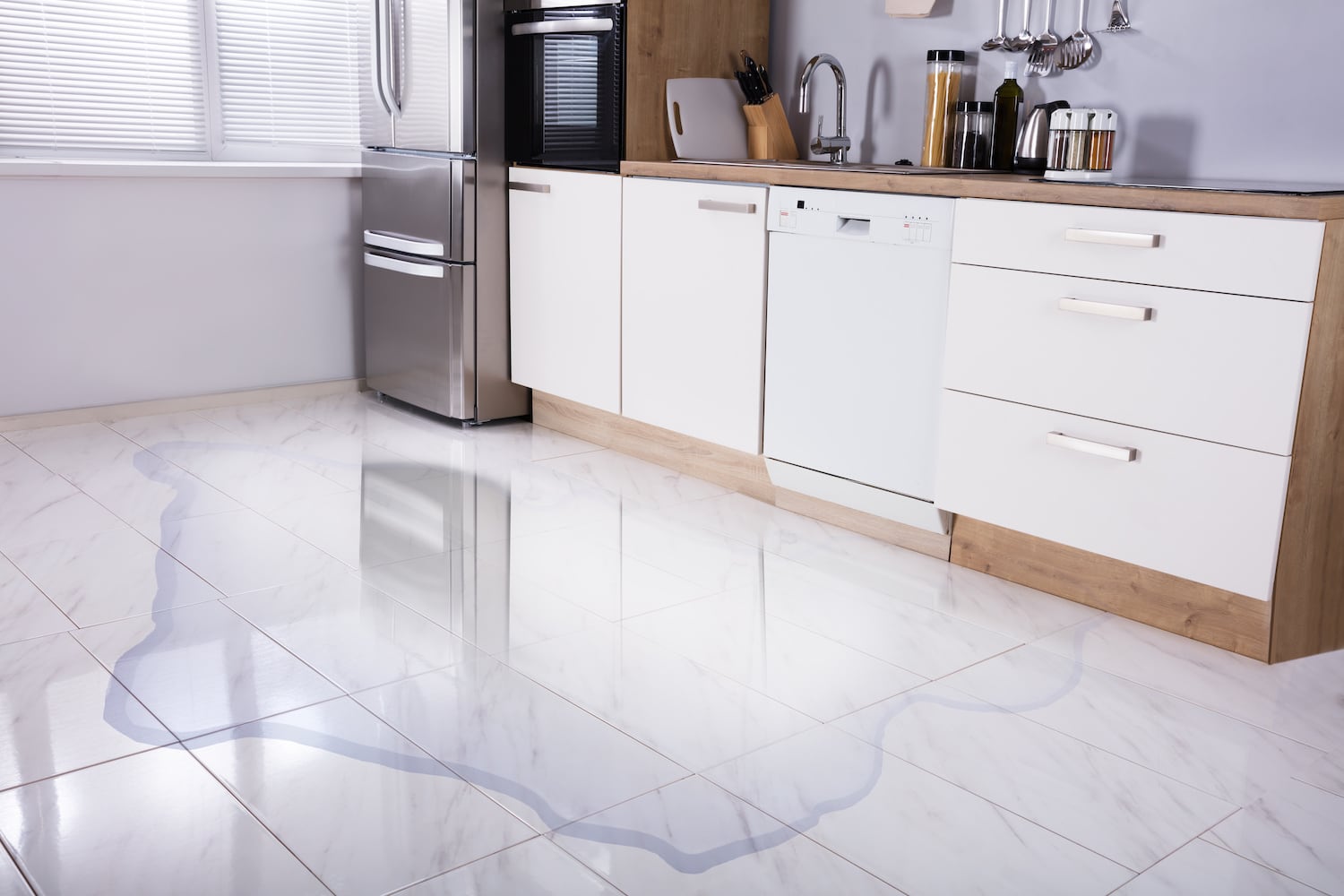
Because a fridge runs at a different temperature than the room around it, it’s natural for there to be some water buildup from condensation and other processes. Most of the time, this water is collected in a drain pan underneath the refrigerator. It then evaporates, protecting your home from water damage.
If you discover refrigerator leaks coming from underneath your fridge, it is possible that your drain pan is cracked or damaged. Luckily, this is a fairly easy problem to solve. All you have to do is remove the drain pan from the bottom of the fridge. If you find any damage, you can purchase a new one at a hardware store or online.
Broken Water Filter
If your fridge produces filtered water, you might find that you develop problems between the fridge and the water filter. This can be caused by a number of different things, including installing a filter that is the wrong size.
If you haven’t changed your water filter in a while, it may be time to change it. Old filters can crack over time, causing your fridge to leak water.
High Humidity Levels
It’s actually possible that your fridge isn’t broken at all! If you live in an area that is experiencing high humidity, you may find that condensation is building up on your fridge and pooling on the floor. If this is the case, running a dehumidifier in the kitchen until the weather changes may help. Alternatively, you can manually change your fridge’s drain pan to avoid it overflowing.
Water Line Leaks
If the leak is coming from your water line, and it isn’t frozen or clogged, it’s possible that there is a leak within the line itself. You can attempt to fix this yourself by tightening the valves with a wrench. If this doesn’t work, it’s time to call in a professional.
Can I Fix It Myself? 🔧
As you can tell, there are lots of DIY solutions to a leaking refrigerator. That being said, if you are not confident in your plumbing skills, it’s important to call a qualified plumber. If you attempt to fix something without being confident, you could end up damaging your refrigerator and paying more in the long run.
How Much Will My Fridge Repair Cost? 💰
Refrigerator repair costs can vary widely, depending on the severity of the problem. In general, you can expect to pay $100-$400 to get your fridge leak diagnosed and repaired.
Contact a Professional ☎️
Tried fixing your fridge yourself with no success? Time to call in the professionals! At AJ Alberts Plumbing, we have 30 years of industry experience. Whether you are looking for refrigerator repairs, water filter installation, or help with other plumbing issues, our team of knowledgeable professionals can help.
With a 4.9 star rating on Google, our customers keep working with us for a reason. Discover the AJ Alberts difference for yourself! Contact us today to set up your plumbing service.


